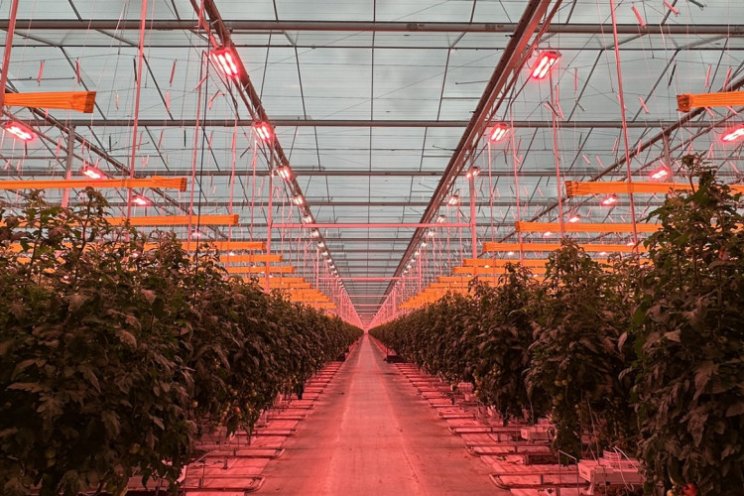An update on biological products for greenhouse lettuce growers
Added on 30 March 2021


Internal trials at Mycorrhizal Applications?demonstrate?greenhouse?lettuce?grown?without?(left)?and with?(right)?mycorrhizal inoculation.?Photo courtesy of Mycorrhizal Applications
- Howler (Pseudomonas chlororaphis) from AgBiome provides good to superior control of Pythium, Phytophthora, and Rhizoctonia. All are serious pathogens attacking roots, causing damping-off, smaller, slow-growing plants, and lower yields. Howler also provides control of Botrytis and powdery mildew, recurrent problems in greenhouse production due to high humidity, and optimum growing conditions.
- ON-Gard Calcium from BioWorks is an organic liquid formulation that combines plant-derived soy protein hydrolysate and calcium chloride for the treatment and prevention of calcium deficiency in susceptible crops. The soy protein hydrolysate is readily absorbed through the leaves and doubles the uptake efficiency of calcium by plants. In hydroponic lettuce, spray application of the product helps move calcium to the tips of the leaves, eliminating tipburn.
- Amblyseius cucumeris from Bioline Agrosciences is a standard for thrips and broad mite control, and the development of a new product, Bugline, has added a new dimension. This continuous strip of sachets allows easy application to the crop of a controlled-release system of predatory mites. The patented system can be pulled out between the crop rows and will release mites for several weeks, giving continuous control of the pests on the crop.
- TetraCurb Concentrate from Kemin Crop Technologies is a plant-based biological, and its active ingredient (rosemary oil) provides multiple modes of action, offering growers a new tool for resistance management. TetraCurb can help control and mitigate population outbreaks on many common leafy-greens pests such as whiteflies, thrips, aphids, or mites.
- MycoApply Endo from Mycorrhizal Applications is a granular mycorrhizal inoculum consisting of four species of endomycorrhizal fungi. About 85% of the world's plant species form symbiotic relationships with this type of symbiotic soil fungus. These beneficial fungi greatly increase the effective rooting area of plants, thereby enhancing plant growth, vigor, and tolerance of environmental extremes.
Source: Greenhouse Grower
Header Photo created by jcomp - freepik
Source: Greenhouse Grower
More news















